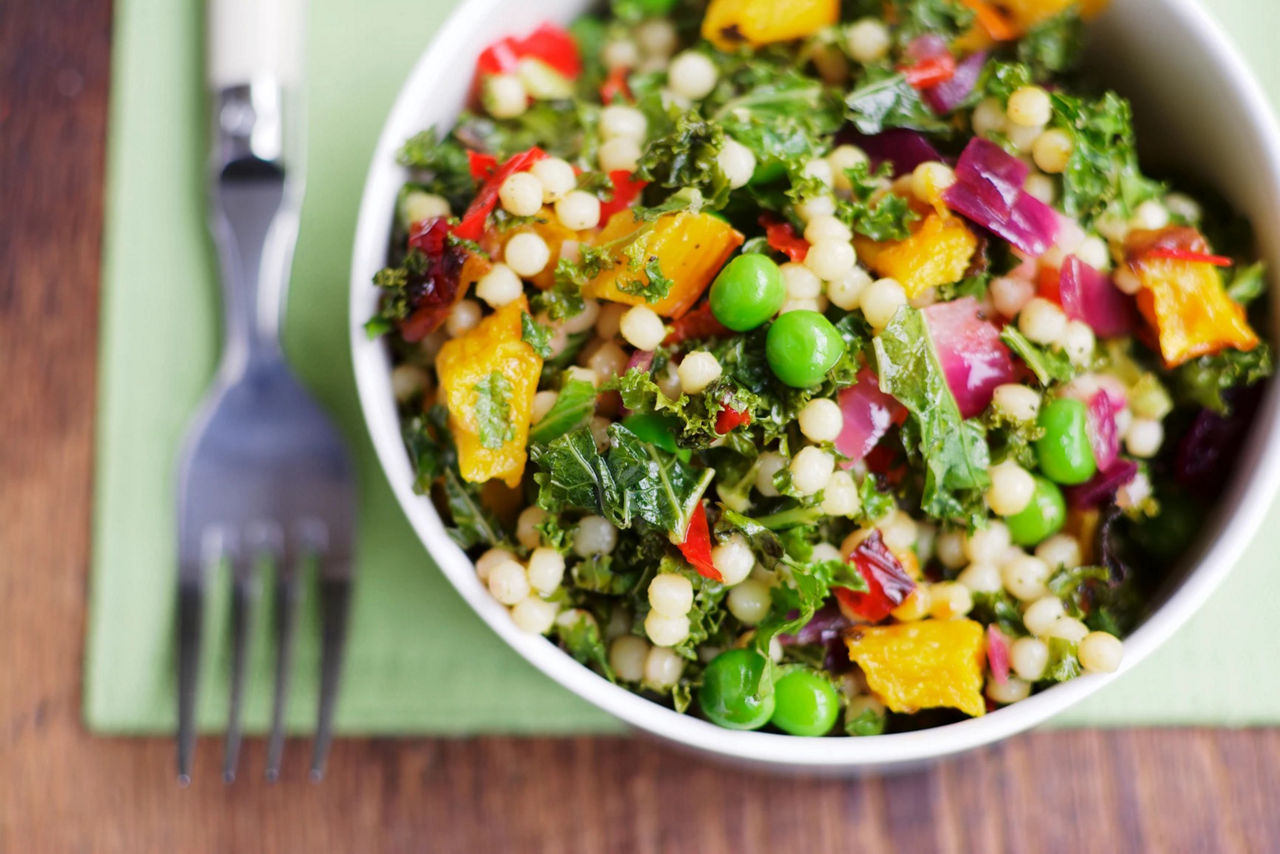Vitamin K in pregnancy
Vitamin K is a group of vitamins which the body needs for blood clotting and helping wounds to heal properly1.
It’s important to make sure that you and your baby are getting enough vitamin K during pregnancy, and in preparation for labour and your recovery afterwards2, 3. But just what is the importance of vitamin K during pregnancy? How much of it do you need? And why is it given to newborn babies immediately after birth?
Below you’ll find the answer to all these questions, and more information and advice around vitamin K and pregnancy.

Why is vitamin K so important during pregnancy
The role vitamin K plays in blood clotting is perhaps the most crucial when it comes to giving birth and recovery after labour. That’s because vitamin K can help to reduce the risk of maternal bleeding4. This is particularly helpful after birth, when your body needs to heal.
Beyond this, vitamin K is also needed for healthy bone development and protein formation in the liver5.
Getting enough vitamin K is also crucial for newborn babies. That’s because, although very rare, low levels of vitamin K can lead to a condition called haemorrhagic disease, which increases their risk of bleeding too much6.

How much vitamin K do you need when you’re pregnant?
The exact amount of vitamin K you need depends on your size. According to the NHS, the average healthy adult needs approximately 1mcg a day of vitamin K for each kilogram of their body weight. So, if you weigh 65kg, you need 65mcg of vitamin K each day1.
You should be able to get enough vitamin K by eating a healthy, balanced pregnancy diet1, and as a fat-soluble vitamin7, your body can build up stores of vitamin K in the liver, ready to use when you need it1.
It’s worth noting that some medical conditions and medications (warfarin being one such example) can affect your ability to absorb nutrients like vitamin K. As such, if there’s a risk you’re not getting enough, you may need to take a vitamin K supplement to ensure that you get a consistent and adequate intake7.
If you have any concerns about your intake of vitamin K in pregnancy, talk to your GP or midwife, specially before taking any supplements or making any changes to your diet.
What are the warning signs of low levels of vitamin K?
A deficiency in vitamin K is quite rare, and often it doesn’t result in any significant complications. However, for those who have liver disease, or a health condition that affects how they absorb vitamins and minerals (for example celiac disease), the risk of bleeding is higher8.
For adults, low levels of vitamin K can result in weakened bones, fracture and osteoporosis8. In babies, symptoms of low levels of vitamin K include bleeding from their bottom, umbilical cord stump, nose and gums. You may also see blood in their urine, and bruises on their skin9.
Does vitamin K have any side effects?
There’s little evidence to suggest that an excessive amount of vitamin K in pregnancy will result in any side-effects. However, you should always consult with your doctor before taking any supplements, and only do so when advised by a healthcare professional6.
Which foods contain vitamin K?
Foods rich in vitamin K include1, 11:
- Green leafy vegetables such as spinach
- Broccoli
- Green beans
- Peas
- Vegetable oils such as rapeseed, olive and soya
- Cereal grains
There are also small amounts of vitamin K to be found in some meat and dairy products1.
Why not try increasing your intake with these vitamin K-rich snacks and meals:
- A bowl of vitamin K- fortified breakfast cereal
- Roast asparagus with a poached egg
- Steamed broccoli with your favourite salad dressing
- Oven-baked kale crisps
- Sesame-crusted tuna steaks with quinoa and baby spinach
Protecting your baby with vitamin K at birth
Although a significant deficiency is unlikely, newborn babies arrive into the world with low levels of vitamin K in their blood. This can sometimes result in newborn babies bleeding- known as vitamin K deficiency bleeding (VKDB)9.
As a result, your newborn baby will be offered a single injection of vitamin K shortly after birth, just to be on the safe side. If you don’t like the idea of your baby having an injection, vitamin K can be given by mouth instead9.
Will my newborn baby experience any side effects from vitamin K?
The NHS strongly recommends that your newborn baby has the vitamin K injection, as even though VKBD is very rare, it can also be unpredictable, making it very difficult to know whether your newborn baby is at risk11.
How do I get vitamin K for my baby?
It’s likely that your midwife will discuss your options with regard to vitamin K during your antenatal appointments, so that a note can be taken about whether or not you want your newborn baby to have the injection3.
The injection will be offered very soon after your baby is born and will be given by a single dose into their thigh. If you opt for your newborn baby to have their vitamin K orally, they’ll need three doses; one immediately after birth, the second when you baby is around seven days old, and the final dose at about six weeks9
If you’ve chosen to formula feed your newborn baby, then only the first two oral doses will be needed, as vitamin K is added to all formula milk. If you’re breastfeeding, it’s worth knowing that breast milk is very low in vitamin K, and as such your baby won’t get the amount they need from breastfeeding alone.
However, breastfeeding is still best for your baby, and this isn’t a reason to not to breastfeed. You should always discuss all of your options with regards to vitamin K with your doctor or midwife9.
related articles
Read next

Need some help?
You can get quick answers to common questions in our FAQs.
Alternatively, if you need help with general pregnancy or baby advice, or maybe on using or ordering our products - our expert team are always on hand to talk about feeding your baby.



